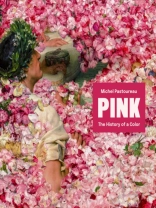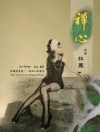From the acclaimed author of Blue and other color histories, the beautifully illustrated story of pink, from the first ancient pigments to Barbie
Pink has such powerful associations today that it’s hard to imagine the color could ever have meant anything different. But it’s only since the introduction of the Barbie doll in 1959 that pink has become decisively feminized. Indeed, in the eighteenth century, pink was frequently masculine, and the color has signified many things beyond gender over the course of its long history—from the prim to the vulgar, and from the romantic to the eccentric. In this richly illustrated book, Michel Pastoureau, a celebrated authority on the history of colors, presents a fascinating visual, social, and cultural history of pink in the West, from antiquity to today.
Pink pigments first appear in ancient Macedonian paintings, but it was not until the eighteenth century that vivid, saturated pinks were developed for dyeing and painting. At the same time, a popular new flower—the pink rose—finally gave the color a standard name, and pink, assuming a place in everyday life, began to acquire its own symbolism, distinct from that of red, yellow, or white. Bringing the story up to the twentieth and twenty-first centuries, Pink describes how the color, both adored and detested, became associated with many other things, from softness and pleasure to nudity and sex.
Illustrated throughout with a wealth of captivating images, Pink is an entertaining and enlightening account of the evolving role and significance of the color in art, fashion, literature, religion, science, and everyday life across the millennia.
About the author
Michel Pastoureau is a historian and emeritus director of studies at the École Pratique des Hautes Études de la Sorbonne in Paris. A renowned authority on the history of colors, symbols, and heraldry, he is the author of many books, including
Blue,
Black,
Green,
Red,
Yellow, and
White (all Princeton). His books have been translated into more than thirty languages.












